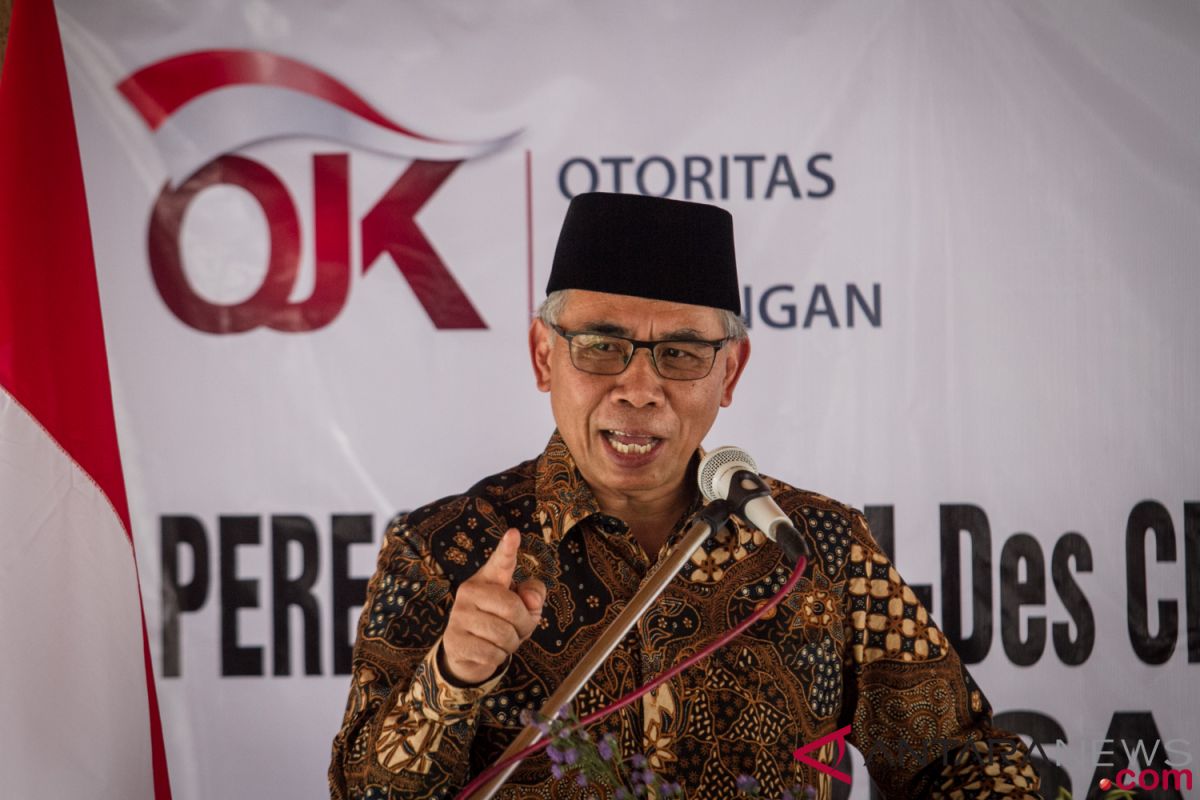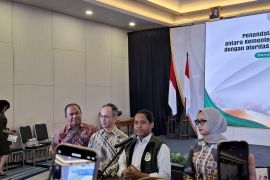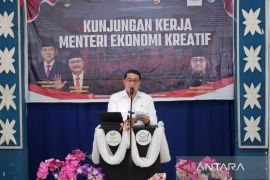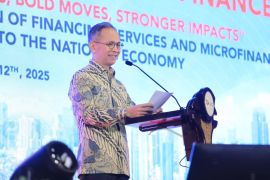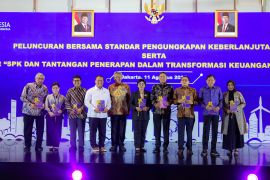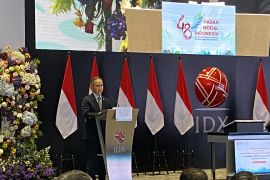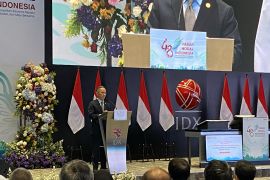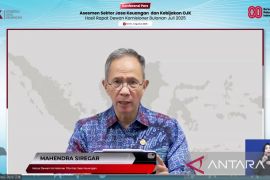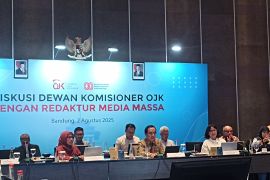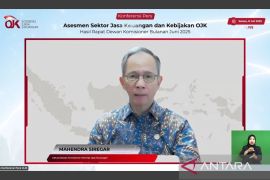The Financial Service Authority (OJK) monitors the development of investors` confidence in our market, which has now begun to increase, Deputy Chairman of OJK Commissioner Nurhaida stated on Saturday.
She said that in the first semester of 2018, the stock market conditions indicated that foreign investment or purchases still recorded a "net sell," while in the second semester, a "net buy" was observed.
"This is an indication to us that confidence of foreign investors increased," she noted.
Nurhaida expects the XVI Economic Policy Package, which includes the expansion of tax holiday facilities, relaxation of the negative list of investments, and foreign exchange controls, will further increase trust and the entry of investors into Indonesia.
According to Nurhaida, the entry of foreign investment into Indonesia could be in the form of foreign direct investment or portfolio investment.
"For investment portfolios, we are talking about the financial services sector," she noted.
Nurhaida said several industries that received tax holiday facilities and DNI were companies in the Indonesian capital market.
"Like the basic chemical industry, there are also steel and steel, this is a company that is actually open to foreign investors," he remarked.
However, the OJK will continue to monitor to gauge what can be done to further increase investor confidence in the financial services sector in Indonesia.
Meanwhile, Chairman of the Board of Commissioners of the OJK Wimboh Santoso observed the factor of the rupiah strengthening against the US dollar, due to an increase in foreign investors in the Indonesian economy.
"Investors (believe), especially portfolio confidence in the condition of Indonesia," Santoso remarked at the Presidential Palace complex.
According to Santoso, Indonesia`s economic fundamentals are stronger than other developing countries, so it is only necessary to communicate to investors to not hesitate in investing in Indonesia.
"Now that our structure is strengthened, our instruments (investments) are large. Now, there is hedging. If we do not trust the rupiah, the central bank will swap, make NDF (non-deliverable forward)," Santoso noted.
Santoso stated that with steps by the OJK and Bank Indonesia in increasing foreign investor confidence, investment instruments in the country will continue to be improved.
In the meantime, Senior Bank Indonesia Deputy Governor Mirza Adityaswara noted that the rupiah had strengthened to below Rp15 thousand per US dollar due to improving financial markets in developing countries.
"The financial market situation in emerging markets, including Indonesia, in the past two days, has improved significantly," Adityaswara remarked in Jakarta on Friday.
Adityaswara explained that one of the triggers for improving the situation in the financial market was the progress in trade negotiations between the United States and China to which financial market players responded positively.
In addition, another trigger of the rupiah`s appreciation is the latest US economic data that is not encouraging, causing a weakening of the US dollar.
"This latest data shows that the US has begun to lose power. It is still fast, but the power is not as fast as earlier this year," Adityaswara stated.
In response to the phenomenon of the strengthening of the rupiah, Adityaswara ensured that the central bank did not intervene as this situation occurred purely due to external movements.
"It strengthened because of supply and demand," he noted.
The rupiah exchange rate traded among banks in Jakarta on Friday afternoon, appreciated by 134 points to Rp14,981 as compared to the previous position of Rp15,115 per US dollar.
Money market observer Bank Woori Saudara Indonesia Tbk. Rully Nova remarked that the overweight view on the Indonesian equity market had a positive impact on the rupiah exchange rate.
"Demand for the rupiah has increased due to this view. Foreign funds have entered our financial markets, especially stocks," he stated.
He added that market players also slightly ignored the Fed`s policy in December 2018, which is likely to again raise the benchmark interest rate.
According to Rully, market players are more likely to focus on the sentiments that are currently circulating, especially in the country.
Meanwhile, economist Samuel Sekuritas Ahmad Mikail added that Indonesia`s October inflation data, which rose above economists` expectations, also became a positive signal for the rupiah.
"The increase in inflation shows an increase in consumption in October," he added.
Reporter: Eliswan Azly
Editor: Yosep Hariyadi
Copyright © ANTARA 2018
